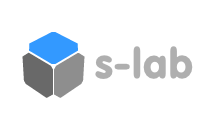Please register for a workshop by sending me an email at sensor.lab@concordia.ca or sign-up on the workshop sheet outside EV 6-705. Each workshop, is approximately four (4) hours long, and requires that there be a minimum of 3 people registered and in attendance on the day in order for the workshop to take place. The workshops are designed to accommodate a maximum of 8 persons per session.
Sensor Lab: Workshops
The Sensor Lab offers a series of workshops over the course of the semester that introduce: Analog Electronics (Electronics for Artists), Digital Electronics & Microcontrollers (Introduction to Arduino, Arduino & Sensing, MicroPython & Sensing, Beyond Arduino), Raspberry-Pi (Python, openFrameworks), Bio-Kinects & Physiological Data (EEG, ECG, EMG, EDA), Machine Learning on Edge Devices, Wireless Computing, Wearable Computing, Soft Circuits & Digital Embroidery Machine, Data Structures & Algorithms, Data Sources & Big Data, Soft Circuits & Digital Embroidery Machine.
Please register for a workshop by sending me an email at sensor.lab@concordia.ca or sign-up on the workshop sheet outside EV 6-705. Each workshop, is approximately four (4) hours long, and requires that there be a minimum of 3 people registered and in attendance on the day in order for the workshop to take place. The workshops are designed to accommodate a maximum of 8 persons per session.
Please register for a workshop by sending me an email at sensor.lab@concordia.ca or sign-up on the workshop sheet outside EV 6-705. Each workshop, is approximately four (4) hours long, and requires that there be a minimum of 3 people registered and in attendance on the day in order for the workshop to take place. The workshops are designed to accommodate a maximum of 8 persons per session.
